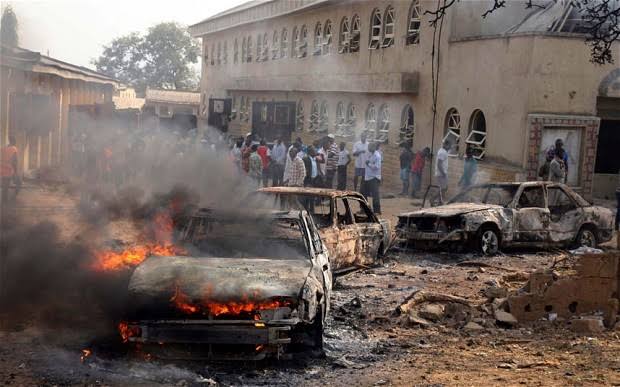Cover Story
Despite paying the ultimate price, Buratai says soldiers not doing enough in insurgency fight

While many officers and men of the Nigerian army battling insurgency in the North East have paid with their lives, the Chief of Army Staff, Lt. Gen. Yusuf Buratai, yesterday said their loyalty to set courses was deficient and is responsible for the setback the Nigerian Army has had in recent operations.
The Chief of Army Staff who spoke at the “Transformational Leadership Workshop” held at the Army Resource Centre, Abuja said insufficient commitment of frontlines soldiers was the reason for the reverses the Army had suffered in its operations.
The workshop was organised to retool the army in view of the growing insecurity.
Although he acknowledged that the Army had scored resounding successes in the past, producing military leaders that had performed exceptionally well at international assignments, he regretted that things had now gone awry in the force.
“It is unfortunate, but the truth is that almost every setback the NA has had in our operations in recent times can be traced to insufficient willingness to perform assigned tasks: or simply insufficient commitment to a common national/military course by those at the frontlines,” he told middle level officers who were at the workshop.
Recent months have seen a spike in insecurity with Boko Haram in the North East and armed bandits in the North-west, and herdsmen in the North Central visiting bloodshed on various communities.
Buratai however, noted that, “It is worthy to note that the Nigerian Army has had good success over the years in the grooming of military leaders.”
“This is evident in the many successes that the NA (Nigerian Army) has achieved in our operations and the high performance of our personnel, both officers/soldiers, in international/multinational operations or other military duties.”
He said he had tried to maintain this tradition by ensuring that promotion of Nigerian Army personnel was essentially based on professional considerations only.
“But we all know that professional capacity is not a sufficient condition to succeed in a task; willingness to perform the task is equally necessary,” he stated.
But regretted that, “Many of those on whom the responsibility for physical actions against the adversary squarely falls are yet to fully take ownership of our common national or service cause,” Buratai said with a tone of regret.
He, nonetheless, urged his officers and men to show sufficient commitment to the national cause, citing President Muhammadu Buhari’s speech made 35 years ago, exhorting Nigerians to fight and salvage the country from external aggression.
“I, therefore, believe that the transformational leadership workshops will again remind and clarify to participants what our president and Commander-in-Chief meant by: ‘this generation and indeed, future generations of Nigerians have no other country but Nigeria, we must remain here and salvage it together,” he said, adding: “The president’s exhortation, though about 35 years old, is still relevant today given as we see in some cases that apathy has even increased amongst the younger generations.”
The workshop, a six-day programme, for mid-level officers and soldiers, organised by the Nigerian Army Headquarters Department of Army Transformation and Innovation at the Nigerian Army Resource Centre in Abuja, has the theme “Lead, Follow or Get Out of the Way.”
It is part of the Buratai’s efforts to have a professionally responsive Nigerian Army in the discharge of its constitutional roles.
Buratai told the officers that leadership was core to military professionalism hence the inclusion of aspects of military leadership skills acquisition.
According to him, “Military leadership skills equip personnel with the capacity to control and care for members of their group from the lowest tactical to the highest operational level.
“The NA even conducts special military leadership programmes when necessary to complement what is provided in the routine courses.”
He noted that all such programmes, however, were mainly designed to build capacities that would enhance the intellectual and physical components of a fighting force.







